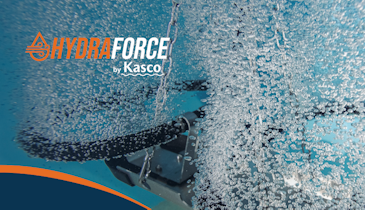
Paul O’Callaghan, right, Brave Blue World executive producer, and Tom Kunetz, Water Environment Federation past president, share a laugh during the filming of Brave Blue World.
It’s easy to get depressed about the world’s water environment. There’s water scarcity, drought, overfished oceans with declining coral and vast masses of plastic waste, inadequate sanitation in many countries, climate change and more.
A new documentary, of which the Water...






